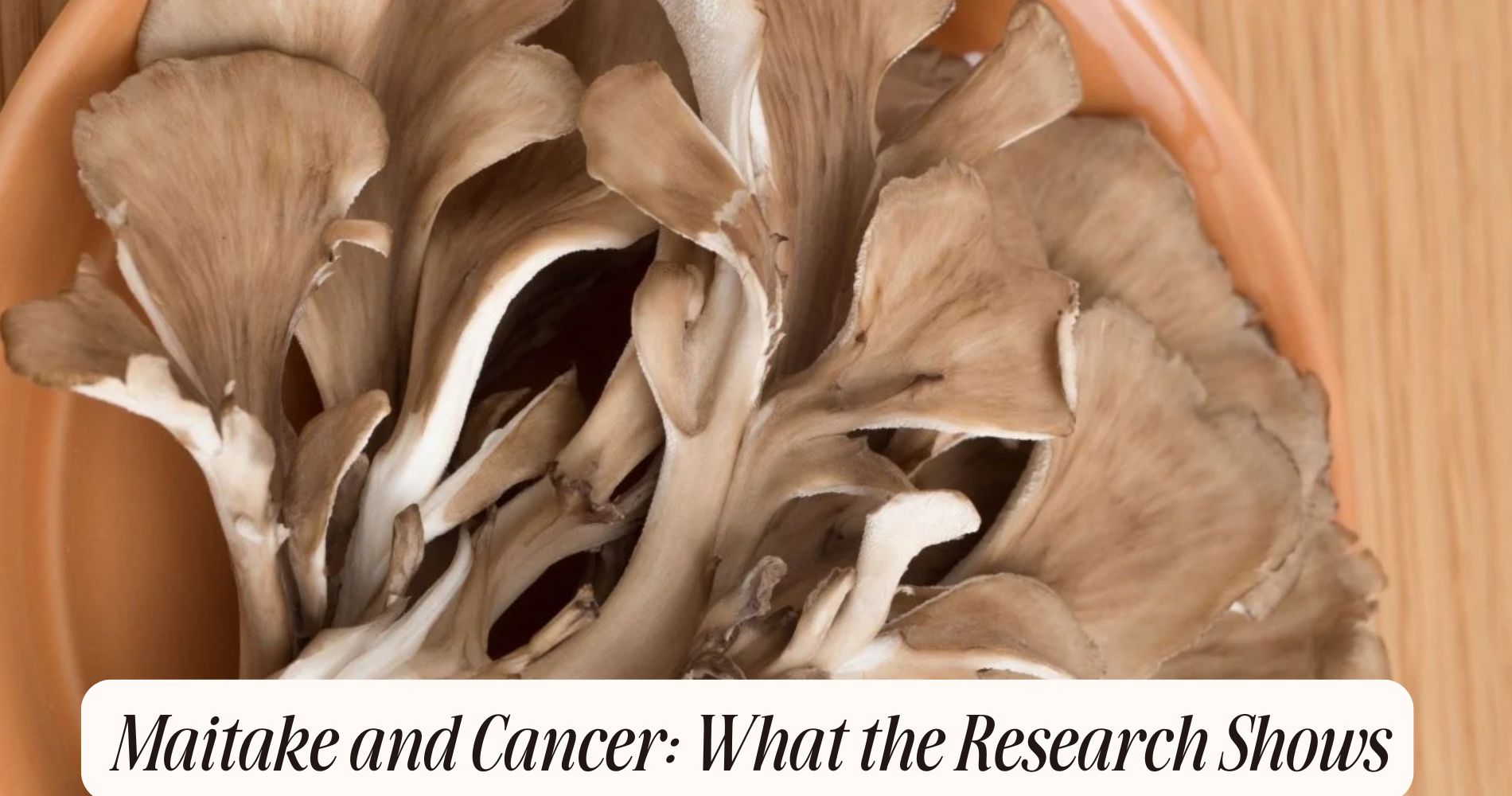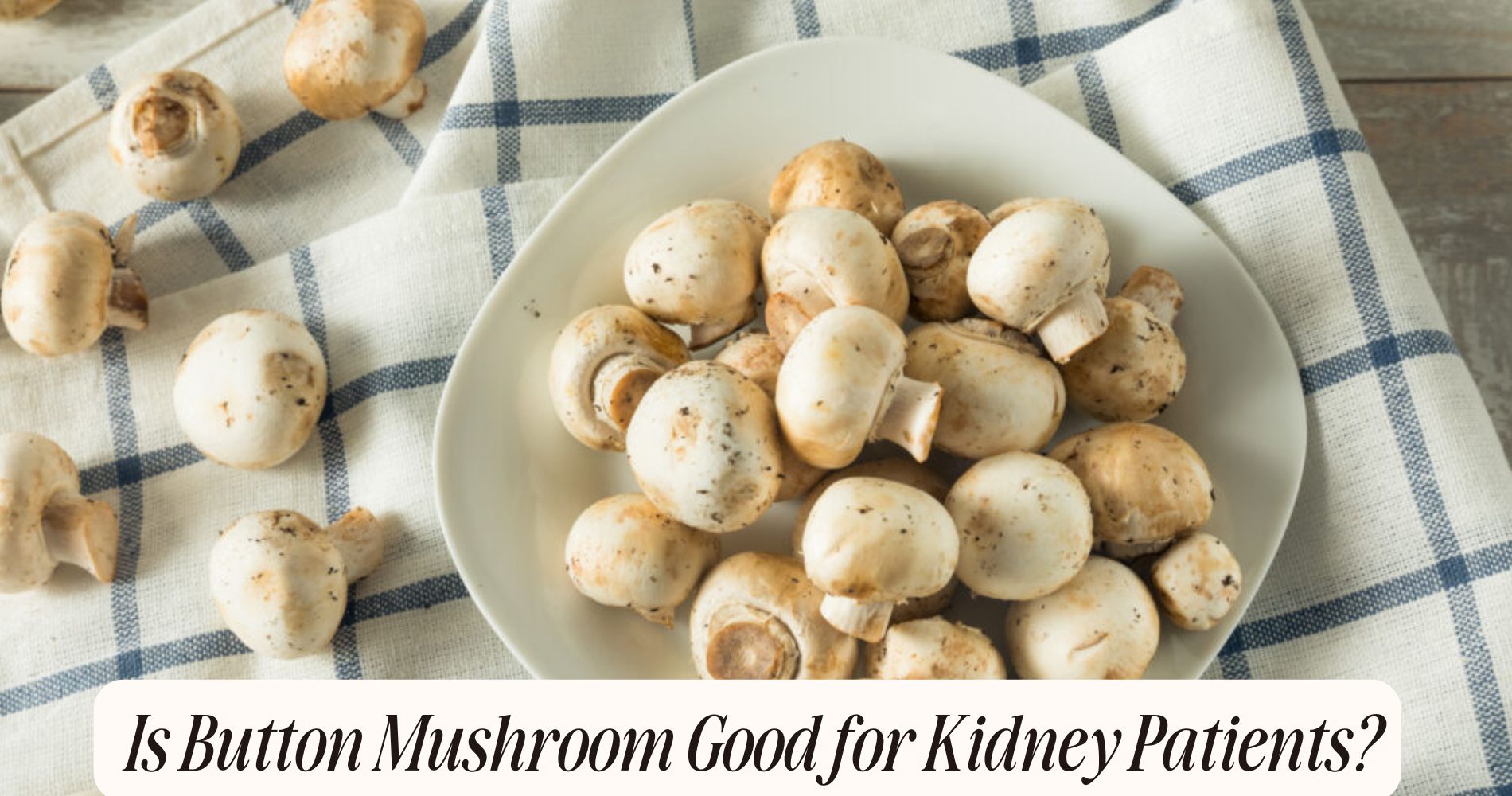
Maitake and Cancer: What the Research Shows
Overview of Maitake Mushrooms
When exploring the domain of medicinal mushrooms, you might find Maitake (Grifola frondosa) particularly intriguing. This edible fungus, native to Japan and parts of North America, has garnered attention not only for its culinary uses but also for its nutritional benefits.
Rich in vitamins such as B2, D, and minerals like potassium and phosphorus, Maitake provides a robust nutrient profile.
In culinary applications, you can enjoy Maitake in various dishes, from stir-fries to soups, where its earthy flavor and unique texture can enhance the overall experience. Its adaptability in the kitchen makes it a favored choice among chefs and home cooks alike.
Beyond taste, the mushroom is low in calories and high in dietary fiber, making it an excellent addition to a balanced diet.

Research indicates that incorporating Maitake into your meals may yield additional health advantages, possibly supporting immune function and promoting overall well-being.
As you investigate deeper into the properties of Maitake, you'll discover its multifaceted role in both nutrition and gastronomy, positioning it as a valuable component of your dietary repertoire.
Key Bioactive Compounds
Maitake mushrooms contain several key bioactive compounds that contribute to their potential health benefits, particularly in cancer research. One of the most studied compounds is beta-glucan, a polysaccharide known for its immunomodulatory effects. Research indicates that beta-glucans can enhance immune function, which may play a critical role in combating cancer cells.
Additionally, maitake mushrooms are rich in ergosterol, a precursor to vitamin D, which has been linked to various health benefits, including cell differentiation and apoptosis in cancerous cells.
Moreover, maitake mushrooms contain various antioxidants, such as phenolic compounds and flavonoids, which exhibit significant anti-inflammatory properties. These antioxidants can mitigate oxidative stress, a known contributor to tumorigenesis.
The synergistic effects of these bioactive properties in maitake mushrooms might amplify their efficacy in cancer prevention and treatment.
Immune System Support
The bioactive compounds found in maitake mushrooms greatly contribute to immune system support, enhancing the body's ability to fight cancer. Research indicates that these compounds, particularly polysaccharides like beta-glucans, play a significant role in immune modulation. They stimulate various immune cells, including macrophages and natural killer cells, which are essential for recognizing and destroying cancerous cells.
When you integrate maitake mushrooms into your diet, you're not just adding flavor; you're also providing your immune system with valuable tools to function more effectively. Studies show that regular dietary integration of maitake can lead to a significant increase in the production of cytokines, which are critical for orchestrating immune responses.

This enhanced immune response is particularly important for individuals at risk for or undergoing cancer treatment, as it may help mitigate some of the adverse effects associated with conventional therapies.
Moreover, maitake's ability to modulate the immune system can lead to a more balanced reaction, reducing inflammation while promoting an effective defense against tumors.
Antitumor Effects in Research
Research has demonstrated significant antitumor effects associated with maitake mushrooms, primarily attributed to their unique bioactive compounds. These compounds, particularly polysaccharides like beta-glucans, exhibit various antitumor mechanisms, including the modulation of immune responses and direct inhibition of tumor cell proliferation. When you consume maitake extracts, you may enhance your body's ability to combat cancer.
In vitro studies have shown that maitake extracts can induce apoptosis in cancer cells, a process that leads to programmed cell death. This is essential because it helps eliminate damaged or abnormal cells that could proliferate uncontrollably.
Additionally, maitake extracts can upregulate the production of cytokines, which further activates immune cells such as macrophages and natural killer cells, enhancing your body's defense against tumors.
Moreover, research indicates that maitake may inhibit angiogenesis, the formation of new blood vessels that tumors need for growth. By disrupting this process, maitake extracts can potentially starve tumors of the necessary nutrients and oxygen they require to thrive.
Clinical Trials and Findings
Clinical trials have begun to assess the efficacy of maitake mushrooms in cancer treatment, building on the promising findings from earlier in vitro studies. These trials aim to evaluate not only the biological activity of maitake extracts but also their clinical significance in improving patient outcomes.
Researchers have focused on various cancer types, including breast, prostate, and colorectal cancers, to determine how maitake can complement conventional therapies.
Preliminary results indicate that maitake may enhance immune function, potentially leading to better tumor regression and improved overall health during treatment. For example, some trials have reported a reduction in tumor size among participants who incorporated maitake into their treatment regimen.
Additionally, patients have noted fewer side effects and improved quality of life when maitake was included in their dietary plan.
However, while these findings are encouraging, it's essential to conduct larger, well-controlled studies to confirm the results. Understanding the dosage, duration, and specific mechanisms of action will provide more robust evidence for the clinical application of maitake in oncology.
Ultimately, these trials aim to clarify the role of maitake in cancer treatment and its potential impact on patient outcomes.
Consumption Methods
Exploring effective consumption methods for maitake mushrooms can greatly influence their therapeutic benefits in cancer treatment. The way you prepare and consume these mushrooms can enhance their bioactive compounds, which have been shown to support immune function and potentially inhibit tumor growth.
Cooking techniques play a vital role in maximizing the health benefits of maitake. Sautéing or steaming are preferable, as these methods preserve the mushroom's nutrients while enhancing their flavor. Avoiding high-temperature cooking, like frying, is advisable since it may degrade some of the beneficial components.

In terms of dosage recommendations, current research suggests incorporating maitake into your diet regularly, aiming for about 3 to 7 grams of the dried mushroom per day. If you're using maitake extract, follow the manufacturer's dosage guidelines or consult a healthcare professional.
Consistency is key; regular consumption may provide cumulative benefits over time. Ultimately, integrating maitake into your meals through appropriate cooking techniques and adhering to dosage recommendations can optimize its therapeutic potential in cancer treatment.
Always consider personal health conditions and consult with a healthcare provider before making significant dietary changes.
Future Research Directions
The potential of maitake mushrooms in cancer therapy invites further investigation into their mechanisms and efficacy. Researchers should prioritize elucidating the specific bioactive compounds responsible for maitake's anti-cancer properties. Analyzing how these compounds interact with cancer cells can help identify ideal dosage and delivery methods.
Additionally, exploring the synergistic effects of maitake in combination with existing cancer treatments, such as chemotherapy and immunotherapy, could enhance therapeutic outcomes. For this, establishing potential collaborations between academic institutions, biotech companies, and healthcare providers can facilitate thorough studies.
Funding opportunities are essential for advancing this line of research. Securing grants from government agencies and private organizations can provide the resources needed to conduct large-scale clinical trials that assess the safety and efficacy of maitake in diverse cancer populations.
Furthermore, examining the effects of various consumption methods—like extracts versus whole mushrooms—on patient outcomes warrants attention.
Harness the Power of Mushrooms with SUPER MUSHROOM GUMMIES
Exploring the health potential of maitake and cancer? Take your wellness journey further with SUPER MUSHROOM GUMMIES by Well Gummies. Each gummy combines the benefits of 10 powerful functional mushrooms, offering immune support, mental clarity, and natural energy—all in an easy-to-use gum chew. These vegan-friendly gummies are designed to help you feel balanced, focused, and energized throughout the day.
With the delightful taste of wild berries, they’re as delicious as candy but without any jitters or crashes. Enjoy the benefits of mushrooms anytime, anywhere with SUPER MUSHROOM GUMMIES!
Frequently Asked Questions
Are Maitake Mushrooms Safe for Everyone to Consume?
Maitake mushrooms offer various health benefits, but you should consider dietary restrictions or allergies before consuming them. Consulting a healthcare professional guarantees you're making safe choices tailored to your individual health needs and circumstances.
Can Maitake Mushrooms Interact With Cancer Medications?
Maitake mushrooms may enhance immune function, potentially benefiting cancer treatment. However, their interactions with cancer medications aren't fully understood. You should consult your healthcare provider before incorporating maitake into your regimen to guarantee safety and efficacy.
How Should Maitake Mushrooms Be Stored for Freshness?
To maintain maitake mushrooms' freshness, store them in a paper bag in the refrigerator. This method enhances airflow and extends freshness duration. Avoid plastic bags; they trap moisture and promote spoilage. Follow these storage tips for ideal results.
What Are the Potential Side Effects of Consuming Maitake Mushrooms?
When you consume maitake mushrooms, you'll experience numerous benefits, but be aware of potential mushroom toxicity. Some individuals may face allergic reactions or gastrointestinal discomfort, so monitor your body's response for any adverse effects.
Where Can I Find Maitake Mushrooms for Purchase?
You can find maitake mushrooms at local farmers' markets, specialty grocery stores, or online retailers. Their benefits include immune support, and you can explore various mushroom recipes to incorporate their unique flavor into your diet.
Conclusion
In conclusion, maitake mushrooms exhibit promising antitumor properties and immune-supporting effects, supported by various studies and ongoing clinical trials. While current research highlights their potential benefits in cancer treatment, more rigorous studies are necessary to fully understand their mechanisms and efficacy. As you consider incorporating maitake into your diet, stay informed about emerging research to better comprehend its role in cancer therapy. Continued investigation will be essential in establishing definitive recommendations for clinical use.




